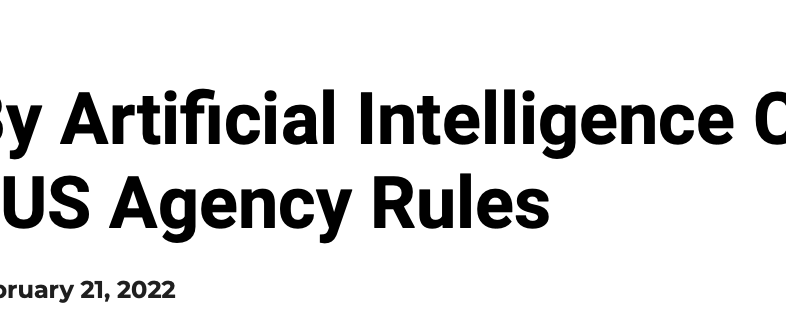I recently read the article Art Created By Artificial Intelligence Can’t Be Copyrighted, US Agency Rules, which is an examination of the ruling by the US Copyright Office refusing to grant copyright to “creations” by an AI/ML: in this case images created by a Machine. These were deliberate test cases to determine the possibility of copyright and under what circumstances, but the Copyright Office “requires human authorship” in order to be granted copyright.
The test cases are important because there’s already a lot of money involved in the sale of the Machines’ creations. The article quotes the sale of one AI-authored ‘painting’ that sold fro $432,000, as a example.
My first response was to approve the Copyright Office ruling: it resonated that copyright had to have human involvement.
But then I considered the arguments being presented for granting copyright to the owner of a ‘creative’ Machine. It was argued that the owner of other types of machine were the owners of the output of the machine, and that’s quite valid. It almost swayed me for a moment, then I realized the fundamental difference is that other types of machine are churning out identical copies of the required output. There is no pretense that there’s anything creative in the output.
Even without copyright protection, people sell the output of all types of machines. The plaintiffs argument that they need copyright to control the use of the material (and make the most money from it) is somewhat undermined by arguing that the copyright should be in the owners’ names instead of the Machine to get around previous rulings of copyright ownership cited in the article.
Which bought me to my moment of outrage: “Why does every item of creative output have to be monetized?” The purpose of copyright is to provide limited protection for a limited time. It’s not designed to give perpetual ownership to an idea (a lesson Disney refuse to learn). It’s good for a culture when ideas can be shared and remixed into something new. Copyright control that’s too tight stifles this remixing and the society is lessened by it.
Given that the Machine can produce infinite numbers of “unique” creative works would likely undermine any potential value because of over-supply.
The deeper question is whether or not every item of creative expression has to be monetized. There’s an underlying assumption in the reporting on the ruling that everything should be monetized and there’s a deficiency somewhere when it cannot be. And that was my moment of outrage.

2 replies on “AI and Copyright: How many opinions (and a little outrage) do I need?”
If I copy the creative output of an AI and then try to copyright it, shall I be opening up a can of legal worms? The arguments that the ruling raises are going to become very interesting and likely provide a rewarding career for smart kids.
Another possible source of legal wealth could follow in the consequential conundrum of who owns an engineering design by an AI. I’m thinking of the engineering designs that will be created by posing a need and a set of constraints instead firing up Solidworks. An AI will produce a design that additive manufacture builds into a structure to satisfy the initial demands with a minimum of unnecessary material.
Congratulations Philip, I think you have detected a paradoxical rabbit hole worthy of Douglas Adams.
As for engineering designs https://www.youtube.com/watch?v=x_cxDgR1x-c